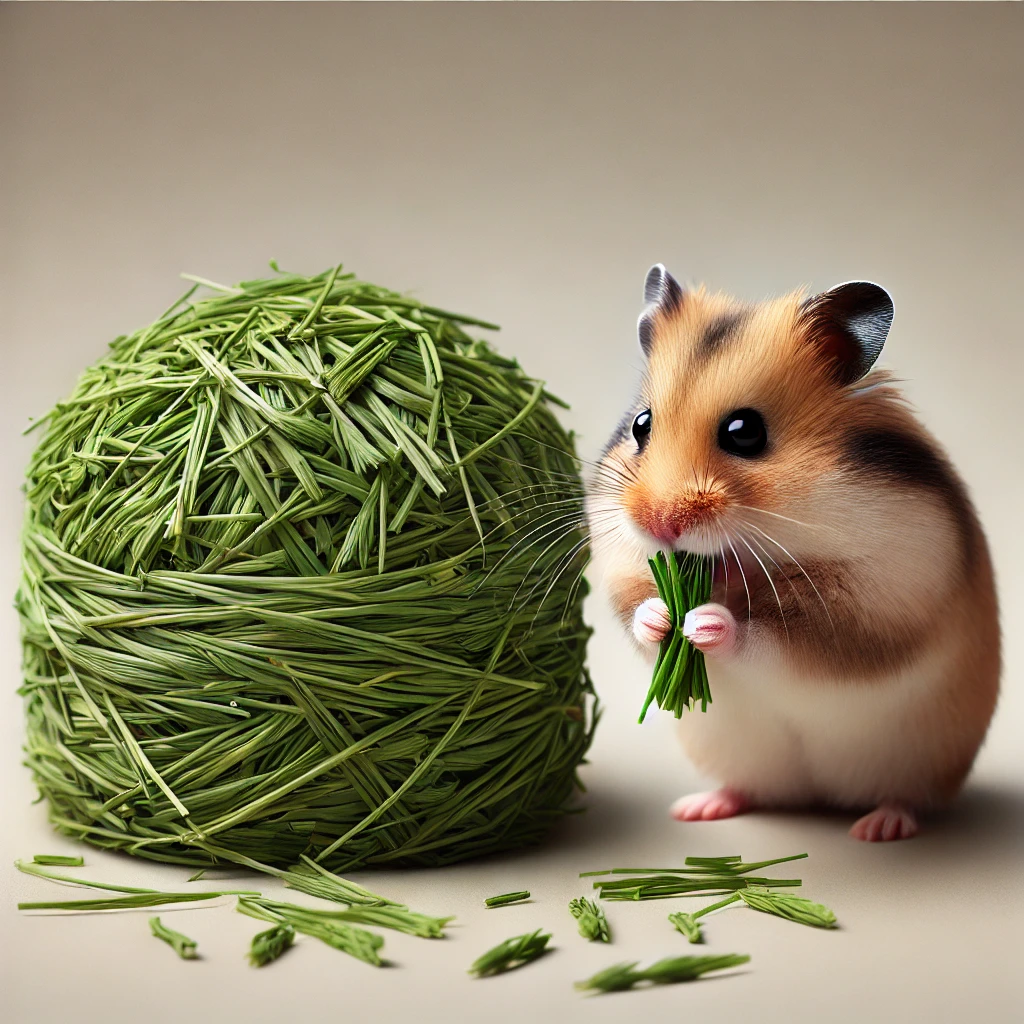Can Hamsters Eat Timothy Hay? A Complete Safety Guide For Hamsters

⚠️ Timothy hay is safe for all hamster species due to very low sugar content (typically 1.5-3g per 100g) and high fiber content (32-35g per 100g). Choose high-quality, fresh-smelling hay free from dust, mold, or discoloration. While not a dietary staple for hamsters (unlike for rabbits or guinea pigs), timothy hay provides environmental enrichment, nesting material, and beneficial fiber. Most hamsters will chew on hay occasionally but not consume large quantities.
Quick Answer On Whether Hamsters Can Eat Timothy hay
Yes, hamsters can safely eat timothy hay when given in appropriate portions.
Species-Specific Guidance For Eating Timothy hay For Hamsters
Safe for:
- Syrian Hamsters
- Roborovski Dwarf Hamsters
- Campbell's Dwarf Hamsters
- Winter White Dwarf Hamsters
- Chinese Hamsters
Not Recommended for:
Proper Portions For Feeding Timothy hay To Hamsters
All hamster species: Small handful provided 2-3 times per week as supplemental fiber and enrichment. Can be left in habitat continuously as it will not spoil quickly.
Preparation Instructions Of Timothy hay For Hamsters
- Check for any moldy, dusty, or discolored pieces before offering
- Remove any foreign objects or sharp stems
- Can be offered in a hay rack, scattered in habitat, or stuffed into toys
- No additional preparation needed
- Store in original packaging or paper bag
- Keep in cool, dry place away from direct sunlight
Health Benefits Of Timothy hay For Hamsters
- Very low sugar content
- Extremely high in beneficial fiber
- Provides environmental enrichment
- Satisfies natural chewing instinct
- Can be used as nesting material
- Helps maintain dental health
- Will not spoil quickly
- Encourages natural foraging behavior
Risks & Considerations Of Timothy hay For Hamsters
- Dusty hay may cause respiratory irritation
- Low nutritional value beyond fiber
- Some hamsters may show little interest
- Sharp stems could potentially cause minor injuries
- Moldy hay can cause serious health issues
- Quality varies between brands and batches
- Takes up habitat space if overprovided
Nutritional Profile Of Timothy hay For Hamsters
Values per 100 grams:
Calories
180
kcal
Protein
8.7
grams
Total Fat
2.5
grams
Carbohydrates
51.8
grams
Fat Profile
Saturated Fat
0.5
grams
Monounsaturated
0.3
grams
Polyunsaturated
1.4
grams
Omega-3
0.6
grams
Omega-6
0.8
grams
Protein Content
Percentage
8.7%
Quality
Low
Digestibility
Low
Amino Acids
- Leucine
- Lysine
- Threonine
- Valine
- Isoleucine
- Phenylalanine
Other
Fiber
34.2
grams
Sugar
2.3
grams
Vitamins
Vitamin A
3000
IU
Vitamin B Complex
B1: 0.3 mg
B2: 0.45 mg
B3: 2.6 mg
B6: 0.3 mg
B9: 32 mcg
Vitamin C
10
mg
Vitamin E
12
mg
Vitamin K
80
mcg
Minerals
Calcium
430
mg
Iron
35
mg
Phosphorus
240
mg
Potassium
1800
mg
Sodium
80
mg
Zinc
2.8
mg
Storage Information Of Timothy hay For Hamsters
Temperature
Room temperature
Duration
6-12 months if properly stored
Storage Tips
- Store in original packaging, paper bag, or breathable container
- Do NOT store in airtight plastic containers (promotes mold)
- Keep in cool, dry place away from direct sunlight
- Protect from moisture and humidity
- Check for mold or unusual smell regularly
- Store away from strong odors as hay absorbs smells
- Discard if hay develops musty smell or visible mold